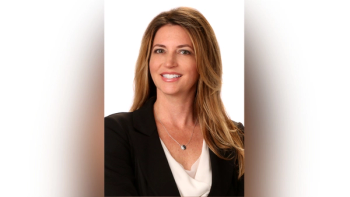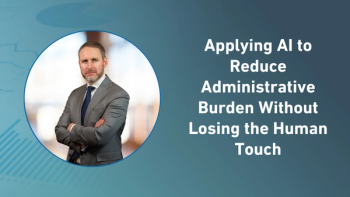
- Applied Clinical Trials-04-01-2025
- Volume 34
- Issue 2
The Gatekeepers Are Gone: What’s Next for Digital Patient Engagement?
The clinical trial industry has a rare opportunity to redefine its role in public health conversations.
With 40% of young people now getting their news from platforms such as TikTok and Facebook,1 the way people engage with health information is changing dramatically. Rather than viewing this as a threat, the clinical trial community has an opportunity to connect with highly engaged—but not always well-informed—healthcare consumers who are hungrier for information than ever before.
The democratization of health information has empowered patients to seek and discuss medical knowledge on their own terms. While misinformation remains a concern, the solution isn’t to fight this trend but to actively participate—guiding conversations in a way that benefits both science and the public.
The shift in trust and information sources
Many clinical researchers lament the rise of misinformation and yearn for the orderly days of fewer, more authoritative communication channels. But the reality is irreversible—the way trust is built has evolved. Patients no longer rely solely on institutions; they turn to peers, influencers, and online communities.
Digital advertising remains a valuable tool for clinical trial recruitment, but credibility is now as important as reach. “A trust relationship needs to be established long before recruitment is even considered,” says Craig Lipset, a leading voice in digital patient advocacy. “Most of us are turned away when strangers show up in our social feed pushing a product with a perceived agenda. This is no different when a post shows up on social solely to recruit into a trial. A decision to participate in a trial with an investigational medicine requires trust, and if you have not invested or partnered to earn trust, then people take their cues from others where trust was already established—rightfully or wrongfully—ahead of you.”
A more ethical and effective approach
This means shifting from transactional recruitment to meaningful engagement. Organizations that establish genuine connections through grassroots education and leverage the power of authentic influencers before recruitment begins often see stronger results. This trend isn’t unique to clinical trials—a reflection of how all human interactions are being reshaped by digital accessibility.
Julio Gagne, VP of program management at Ottima Pharma, displays on his LinkedIn profile a message welcoming connections but explicitly warning that those who immediately pivot to sales pitches will be disconnected. This small but significant boundary-setting reflects a broader truth about our digital landscape: people want authentic connections before they’ll consider a transaction.
Gagne explains, “The parallel to clinical trials is striking—whether partnering with research sites or engaging potential participants, these stakeholders resist being treated as mere recruitment targets. They seek authentic understanding and relationship-building before committing to any deeper involvement. The transaction must follow the connection, not precede it.”
Navigating a misinformation-heavy environment
Embracing digital engagement doesn’t mean ignoring misinformation or bad actors. Instead of simply correcting falsehoods from a position of authority, the most effective engagement comes from supporting people’s health information journeyand helping them to navigate the complexity.
The path forward involves developing partnerships with trusted patient advocacy groups and digital health communicators who specialize in community building. Platforms that facilitate peer-to-peer support can be particularly valuable for encouraging evidence-based information seeking and creating safe spaces for health discussions.
A future built on trust and partnership
Meta’s recent changes to its fact-checking approach2 highlight why the source credibility matters more than ever. As platforms experiment with different moderation approaches, organizations that have built direct trust relationships with communities will maintain influence regardless of platform policies.
The clinical trial industry has a rare opportunity to redefine its role in public health conversations. By embracing the public’s growing interest in health information and positioning ourselves as supportive guides rather than gatekeepers, we can transform these digital changes from challenges into opportunities for more meaningful patient engagement. For those unable to build these relationships internally, partnering with organizations who already have community trust can provide an effective bridge—ensuring ethical, patient-first engagement that benefits research and the people it serves.
Hugo Stephenson, MD, is a regular contributor to Applied Clinical Trials’ print editions, where he explores critical topics and challenges in patient recruitment, engagement, and diversity in global clinical trials. A physician, entrepreneur, and thought leader, Stephenson has founded disruptive initiatives such as Quintiles’ Global Late Phase Services, MediGuard, DrugDev, and now TrialScreen.
References
1. More Americans – Especially Young Adults – are Regularly Getting News on TikTok. Pew Research Center. September 17, 2024.
2. Kaplan, J. More Speech and Fewer Mistakes. Meta. January 27, 2025.
Articles in this issue
10 months ago
What’s Next for DEI?10 months ago
The Impact of DEI Ban On Clinical Research Ecosystem10 months ago
Benchmarking Risks Across Therapeutic AreasNewsletter
Stay current in clinical research with Applied Clinical Trials, providing expert insights, regulatory updates, and practical strategies for successful clinical trial design and execution.




